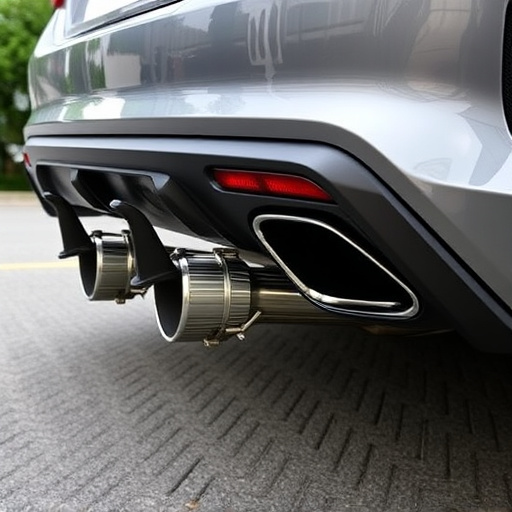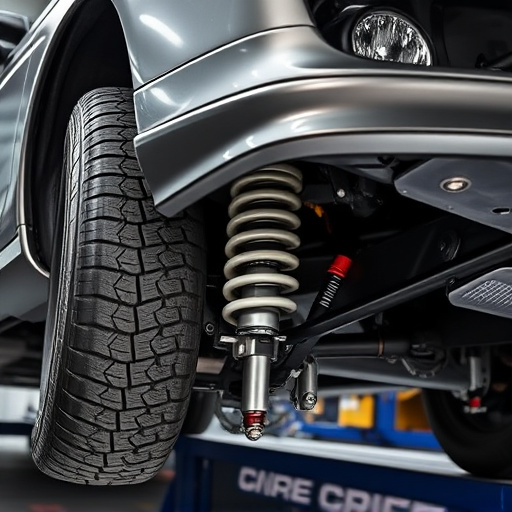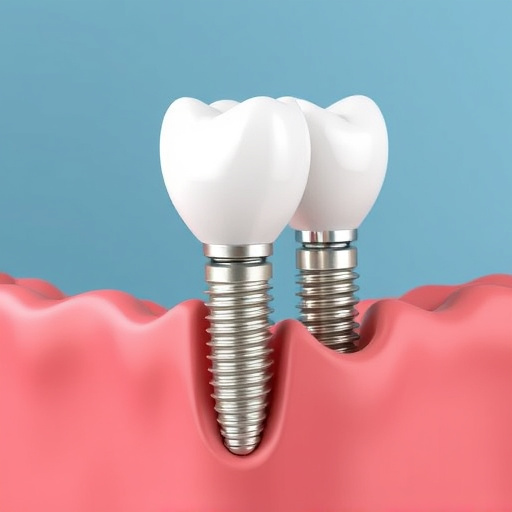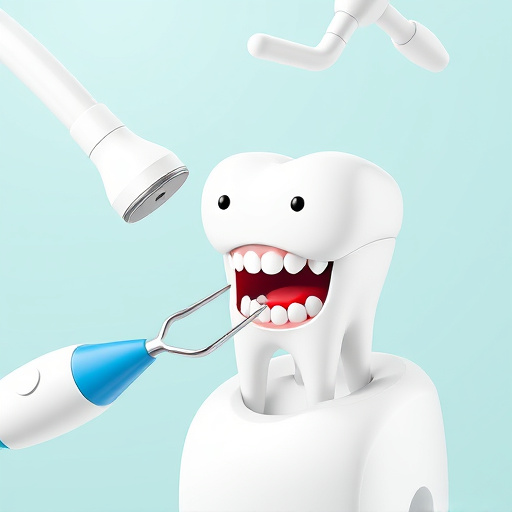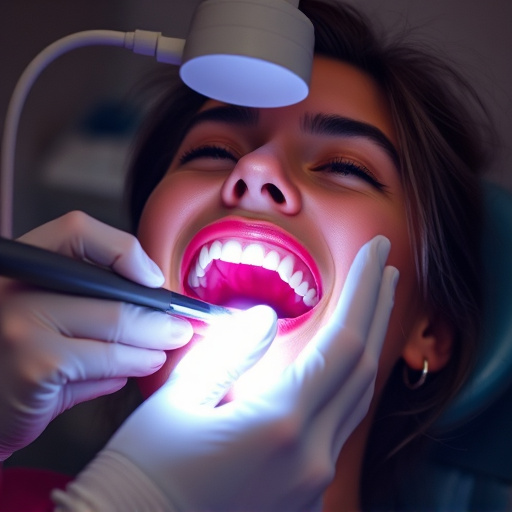Wisdom teeth impaction often causes pain and infections. Regular dental check-ups during adolescence help predict issues. Wisdom teeth removal by professionals is crucial for maintaining optimal oral health. The procedure involves surgical extraction with strict post-surgery care instructions. Early removal prevents future complications, simplifies dental practices, and reduces costly restorative procedures.
“Properly managing your wisdom teeth is crucial for preventing future complications. This article guides you through the essential aspects of wisdom teeth removal, offering insights into understanding impaction risks, navigating the surgery process, and post-operative care. Additionally, we explore the long-term benefits of early removal, ensuring a clear path to optimal oral health. Stay informed with these key considerations for successful wisdom teeth management.”
- Understanding Wisdom Teeth Impaction Risks
- The Surgery Process and Post-Op Care
- Long-Term Benefits of Early Removal
Understanding Wisdom Teeth Impaction Risks
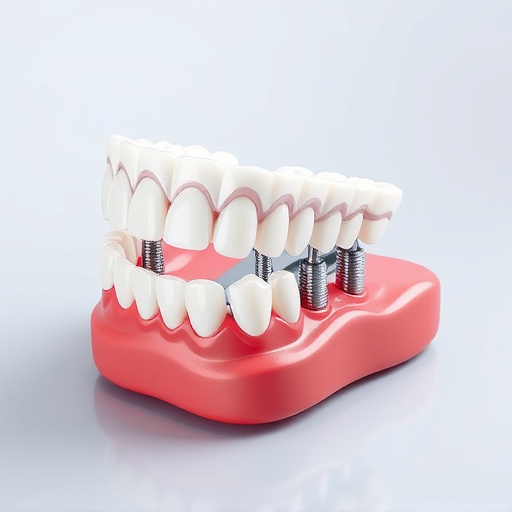
Understanding Wisdom Teeth Impaction Risks
Wisdom teeth, or third molars, often cause problems as they attempt to erupt through the gums. If there’s insufficient space for them to push through correctly, wisdom teeth can become impacted—partially or fully trapped beneath the gum line or bone. This can lead to numerous complications, including pain, infection, and damage to neighboring teeth. Regular check-ups with your dentist, especially during adolescence, can help identify potential issues early on. Children’s dentistry specialists often monitor the development of wisdom teeth, as they can predict future problems and recommend appropriate actions, such as preventative tooth extractions.
Cosmetic dentistry procedures like wisdom teeth removal are crucial when impactions cause oral health concerns. Tooth extractions should be performed by qualified professionals to ensure minimal discomfort and swift recovery. By addressing wisdom teeth issues promptly, patients can avoid more severe complications and maintain optimal oral health, enhancing their overall well-being.
The Surgery Process and Post-Op Care
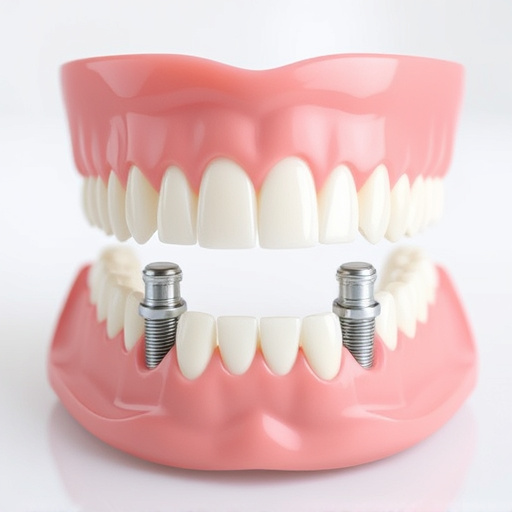
The wisdom teeth removal surgery process typically involves a dentist or oral surgeon making a small incision in the gum tissue to access the impacted or partially erupted wisdom teeth. Using specialized tools, the tooth is carefully extracted, ensuring surrounding structures and nerves are not damaged. In some cases, the surgical site may need to be cleaned and stitched for optimal healing.
Post-operatively, patients should follow strict care instructions. This includes keeping the head elevated during the initial hours to reduce swelling, applying cold compresses to minimize pain and inflammation, and avoiding strenuous activities or vigorous brushing near the surgical site. It’s also crucial to maintain proper oral hygiene by gently cleaning the mouth and chewing soft foods to prevent infection. Regular check-ins with the dentist are essential to monitor healing and address any concerns regarding tooth repair or potential complications.
Long-Term Benefits of Early Removal
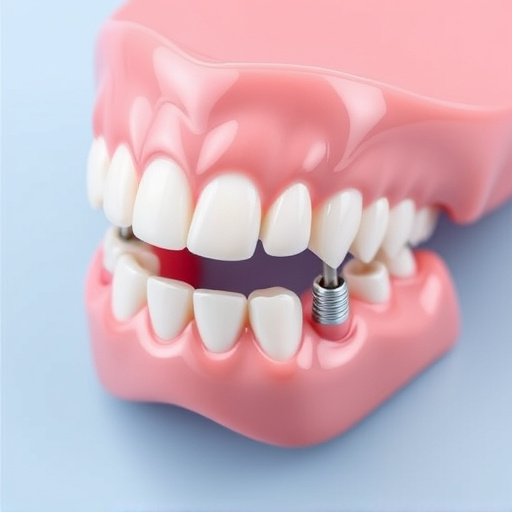
Early wisdom teeth removal offers significant long-term benefits that can prevent future complications. When left intact, wisdom teeth can cause various issues such as impaction, infection, and damage to adjacent teeth. By having them removed prophylactically, individuals can avoid these problems and maintain optimal oral health. This proactive approach ensures that the surrounding teeth and gums remain healthy, reducing the need for future dental interventions like tooth extractions or extensive procedures addressing impacted wisdom teeth.
Additionally, early removal simplifies subsequent dental practices such as routine cleanings and check-ups. Without the presence of partially erupted or impacted wisdom teeth, dentists can more easily access all areas of the mouth, making it simpler to detect and address potential issues early on. Moreover, it reduces the risk of needing costly cosmetic fillings or other restorative procedures down the line due to damage caused by wisdom teeth issues.
Wisdom teeth removal, while often considered a routine procedure, is a significant step towards preventing potential complications. By understanding the risks of impactions and following proper post-operative care, individuals can enjoy long-term benefits that include reduced chances of infections, cysts, or damage to adjacent teeth. Early removal is key, as it minimizes future disruptions and ensures optimal oral health for years to come. For those considering wisdom teeth extraction, seeking professional advice and adhering to medical guidelines are essential steps in maintaining a healthy smile.
